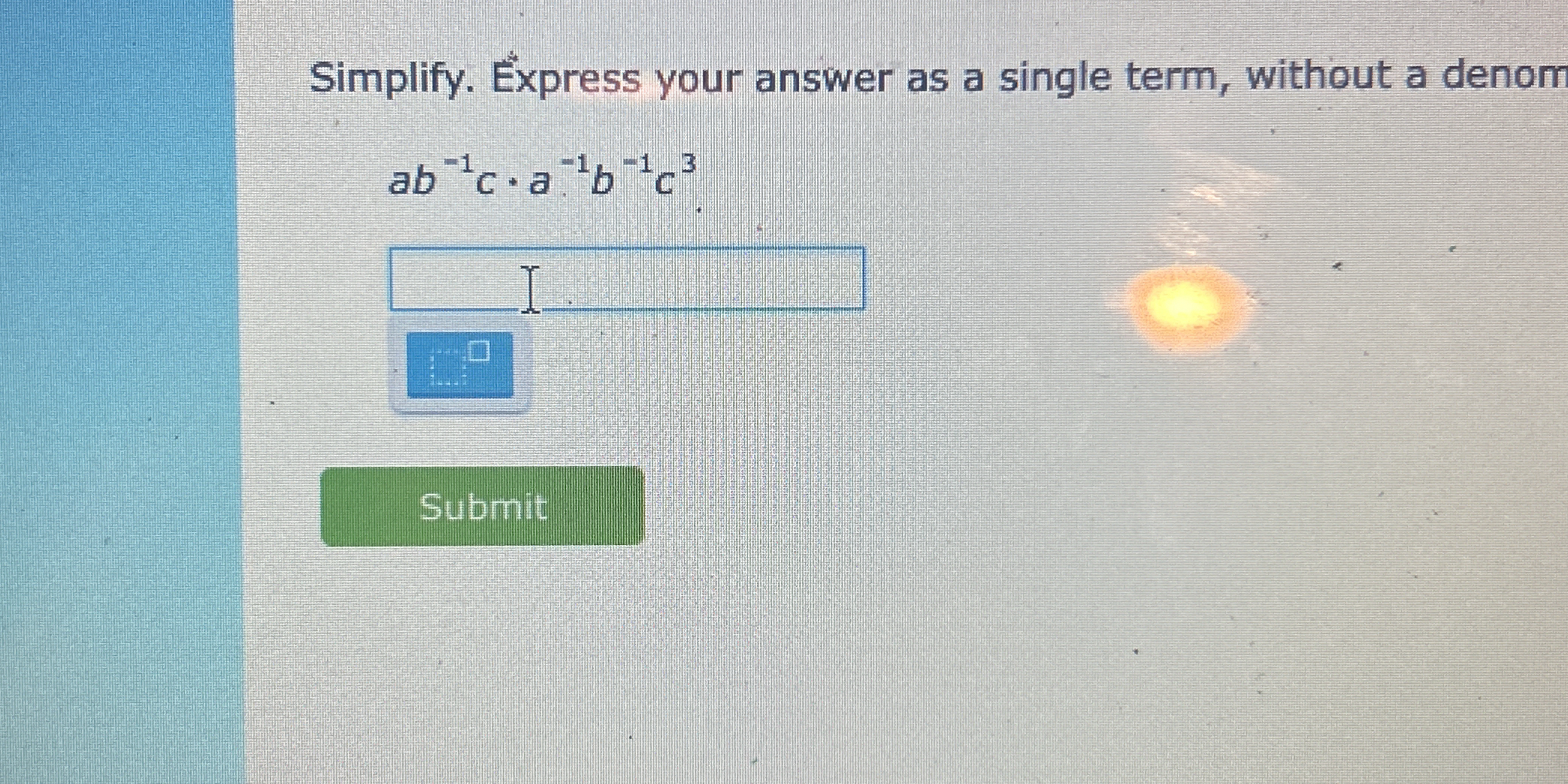Simplify. Express your answer as a single term, without a denominator: ab^{-1}c imes a^{-1}b^{-1}c^{3}.

Understand the Problem
The question requires simplifying the expression given as a product of terms involving variables raised to various powers, particularly focusing on combining the terms into a single term without any denominator.
Answer
The simplified expression is \( c^{4}b^{-2} \).
Answer for screen readers
The simplified expression is: ( c^{4}b^{-2} )
Steps to Solve
-
Write the original expression The expression to simplify is: $$ ab^{-1}c \times a^{-1}b^{-1}c^{3} $$
-
Combine the factors When multiplying terms with the same base, add the exponents:
- For (a): $$ a^{1} \times a^{-1} = a^{1 + (-1)} = a^{0} = 1 $$
- For (b): $$ b^{-1} \times b^{-1} = b^{-1 + (-1)} = b^{-2} $$
- For (c): $$ c^{1} \times c^{3} = c^{1 + 3} = c^{4} $$
-
Write the combined expression By substituting the results back: $$ 1 \times b^{-2} \times c^{4} = \frac{c^{4}}{b^{2}} $$
-
Express without a denominator To express as a single term without a denominator, rewrite: $$ \frac{c^{4}}{b^{2}} = c^{4}b^{-2} $$
The simplified expression is: ( c^{4}b^{-2} )
More Information
The expression combines terms based on the laws of exponents. Remember that ( a^{0} = 1 ), which is why the ( a ) term cancels out.
Tips
- Forgetting to add the exponents when combining like bases.
- Misinterpreting negative exponents; they indicate division rather than a negative value.
AI-generated content may contain errors. Please verify critical information